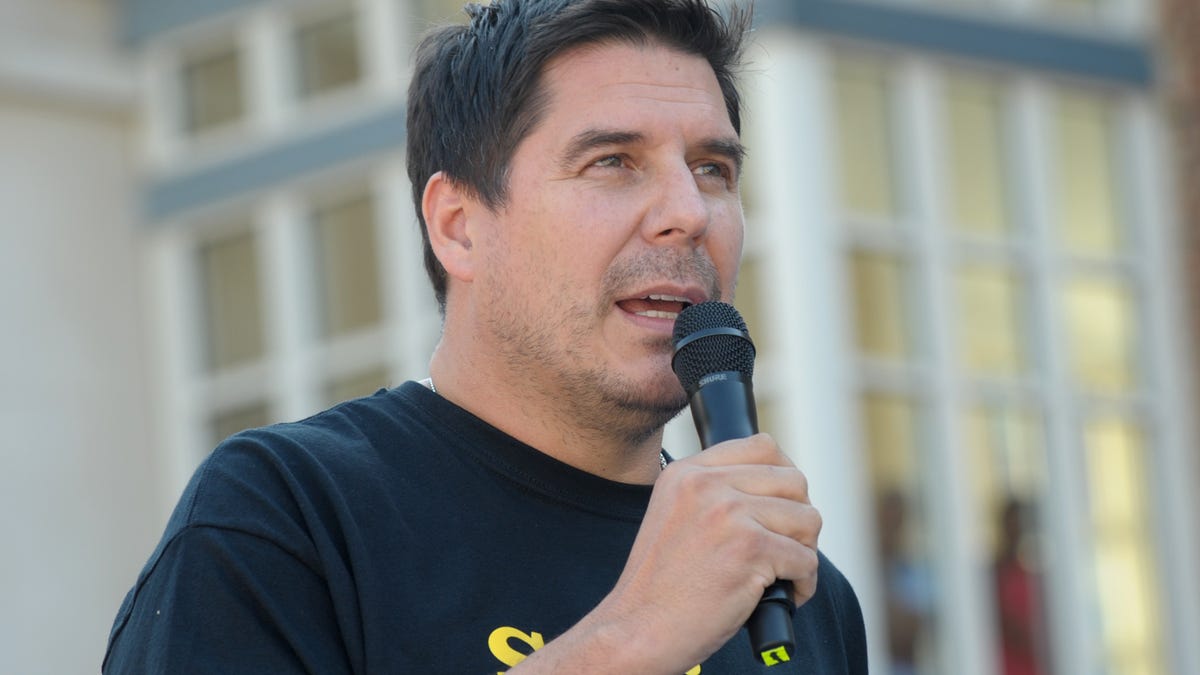Sprint CEO's love of the pitch -- the soccer pitch, that is
Soccer-obsessed Marcelo Claure is among a growing breed of tech executives investing in pro sports franchises.
Billionaire Marcelo Claure is a mega soccer fan.
The Sprint CEO's love of the game, known internationally as football, extends to his personal investments. He owns a powerhouse team in Bolivia, his homeland, and has partnered with soccer legend David Beckham to bring a Major League Soccer team back to Miami.
"I love the fact that I can run two separate businesses that are both passionate to me," Claure said Thursday in an interview before the start of the 16-team Copa America Centenario. The tournament opens Friday with the US taking on Colombia at Levi's Stadium in Santa Clara, California.
Claure's interest in sports ownership isn't unique. A generation of technology magnates is using its wealth to reshape the sports world, buying teams and investing in high-tech stadiums. Some are hoping their stakes in teams will help pad their already considerable wealth. Others want to demonstrate they can replicate their success in another field.
"We're all highly competitive people who love to win," Claure said. "My team is a 100 percent extension of myself."
In addition to Claure, Microsoft co-founder Paul Allen owns a chunk of the NFL's Seattle Seahawks and the NBA's Portland Trailblazers. Outspoken tech entrepreneur and billionaire Mark Cuban owns the Dallas Mavericks. They've seen their investments pay dividends: Allen's Seahawks won the Super Bowl during the 2013 season, and Cuban's Mavs won an NBA title in 2011.
Former Microsoft CEO Steve Ballmer bought the NBA's Los Angeles Clippers for $2 billion, one of the highest price tags for a North American sports franchise. Ballmer is so enthusiastic about owning the team that he dunked a basketball off a trampoline in an effort to win over fans when unveiling a new mascot this past season.
Joel Lacob, a Silicon Valley venture capitalist, and Peter Guber, a Hollywood producer, bought the Golden State Warriors for a then NBA-record $450 million, outbidding Oracle CEO Larry Ellison. Led by two-time MVP Stephen Curry and considered one of the best teams at using technology to its advantage, the Warriors are currently vying for a second consecutive championship.
Other techies-turned-sports-owners: Vivek Ranadive owns the Sacramento Kings, and wireless pioneer John Stanton is part of a group that is buying a majority stake in the Seattle Mariners baseball club from Nintendo, the Japanese video game company.
Michael Goldman, a sport management professor at the University of San Francisco, says sports draws tech executives because teams have big public presences but are relatively small organizations. That allows them to magnify their presence.
"Owning a franchise may give them a certain autonomy they may not have in the other companies they run," Goldman said.
Claure agrees.
The executive was influential in guiding Sprint's sponsorship of the 100th anniversary of Copa America, which is being played outside of Latin America for the first time. Much like his interest in bringing pro soccer to Miami, Claure says he wants to help nurture international soccer in the US, where diverse demographics make it a natural fit.
He calls the tournament the "most important soccer event" in the US since 1994, when the country hosted the World Cup.
And Claure loves calling the shots at Club Bolivar.
His voice rises with pride when reporting that his team, which he supported since childhood, has won five Bolivian league championships since he bought it eight years ago. Club Bolivar had negative equity of $3 million, he says, but is now worth $8 million.
His responsibilities as Sprint CEO prevent him from attending more than just a handful of Club Bolivar's games each year. Still, he makes sure to see each game, even if he has to hire a private camera crew to stream a match.
"I truly look forward to Sundays during the season," Claure said. "When we're not playing, I feel like there's something missing in my life."


